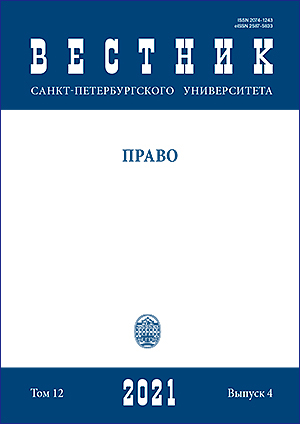Development of juvenile delinquency — causes and conditions
DOI:
https://doi.org/10.21638/spbu14.2021.416Аннотация
In the last few decades, juvenile delinquency in the Republic of Bulgaria has begun to acquire new and specific characteristics. Inexplicable cases of violence are all too common in schools, families and public places. The article analyzes a small part of the theories of juvenile delinquency that exist in the global aspect, which are based on the understanding that criminal acts are determined by mental and behavioral processes at the individual level. According to the theory of rational choice, minors are motivated offenders who subordinate their behavior to a certain goal. Another group of views is defined as theories of biological and psychological traits. Antisocial manifestations are not so much due to the course of certain motivational processes in an individual’s mental state, but primarily to the formation of individual patterns of behavior. The article aims to assist Bulgarian criminal law and criminology in clarifying the current circumstances in which juvenile delinquency develops, and the conclusion is that they do not differ significantly from those in the global context. The different perspectives on juvenile delinquency and the interdisciplinary nature of the problems are presented as objectively as possible. Such an approach can lead to a rethinking of the mechanisms and measures that should be applied to achieve the educational purpose of punishment. The analysis presented in the article also supports the introduction of alternative measures to punishment, as well as the achievement of better results in terms of resocialization of juvenile offenders.
Ключевые слова:
juvenile offenders, causes of crime, rational choice, biological traits, punishment
Скачивания
Библиографические ссылки
Загрузки
Опубликован
Как цитировать
Выпуск
Раздел
Лицензия
Статьи журнала «Вестник Санкт-Петербургского университета. Право» находятся в открытом доступе и распространяются в соответствии с условиями Лицензионного Договора с Санкт-Петербургским государственным университетом, который бесплатно предоставляет авторам неограниченное распространение и самостоятельное архивирование.






